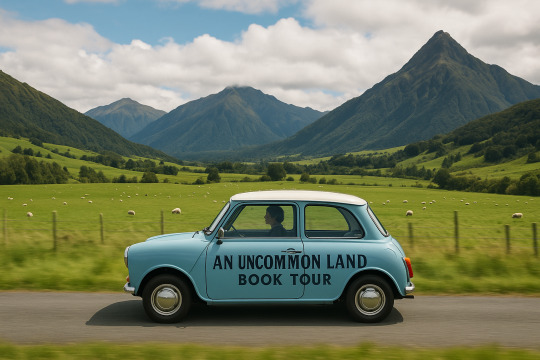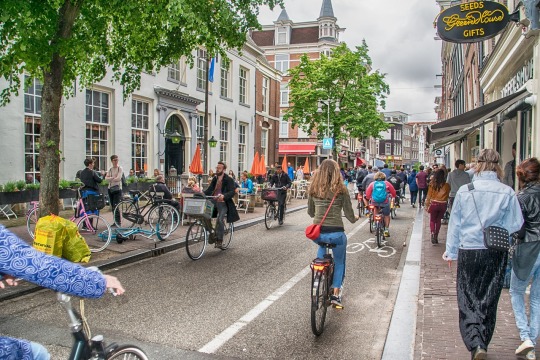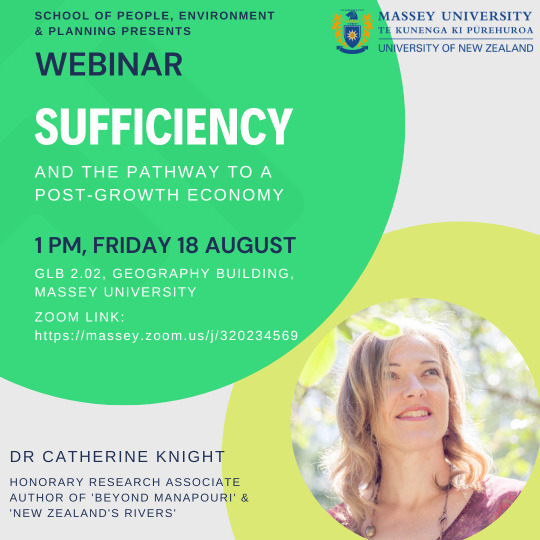Don't wanna be here? Send us removal request.
Text
Announcing the 'An Uncommon Land' Book Tour!
Thanks to the support and enthusiasm of lots of organisations and people around the motu, we have managed to lock in dates for events organised so far: 29 July – national (online), Wellbeing Economy Bookclub 9 August – Paekakariki, Kapiti Book Festival 12 August – Christchurch, Scorpio Books 13 August – Timaru, South Canterbury Environment Centre 14 August – Dunedin, Centre for…

View On WordPress
0 notes
Text
Discover 'An Uncommon Land'
My new book ‘An Uncommon Land’ was released this month and you can find out more about it (including how to order) here. For a sneak preview, check out the book trailer. For more regular posts on the themes traversed in An Uncommon Land (eg, wellbeing economy, environmental history, the history of commons and their enclosure), why not check out my Substack An Uncommon Land.
youtube
View On WordPress
0 notes
Text
'Ravaged Beauty' now available as an e-book
An exciting announcement! The award-winning ‘Ravaged Beauty’, which is once again approaching sold out in hardcopy, is now available as an e-book. Before the arrival of European settlers in the late 19th century, the Manawatu Region of New Zealand was a heavily wooded hinterland, its forests ringing with the sound of birds, its abundant wetlands teeming with fish and waterfowl. But within a few…

View On WordPress
0 notes
Text
An uncommon land
Exploring enclosure, colonisation and denaturing through an ancestral past, towards the possibilities of a re-commoned future This week, after about four years of working intermittently on my latest book ‘An uncommon land’, I handed over my manuscript to my trusted editor. I have been released (for a while at least) from the research and writing that has been all-consuming over the last months.…

View On WordPress
0 notes
Text
People-centred cities and towns are the way to a more resilient, low-carbon future - not EVs
A people-centred street-scape in Amsterdam. Pixabay I was recently invited to write an editorial for City Changers, a European-based organisation helping to create better cities and towns for the future. This followed a LinkedIn post I wrote earlier this year critiquing the promotion of EVs as a solution to climate mitigation – the post went, as they say, viral. In my City Changers article I…

View On WordPress
#Catherine Knight#cities#climate change#emissions#EVs#green growth#New Zealand#transport#urban planning
0 notes
Text
Beyond Growth Aotearoa Conference 2023 - recordings now available!
The session recordings for the recent Beyond Growth Aotearoa conference, held at Victoria University of Wellington are now available and can be viewed on Youtube. My session focused on sufficiency as a pathway to a post-growth economy. In the talk I draw on the experience of France, which has instituted sufficiency at the core of its energy law. Whatever we call this new pathway, the reality is…
youtube
View On WordPress
#Catherine Knight#conference#degrowth#energy#food security#New Zealand#policy#post-growth economy#sufficiency#wellbeing economy#Youtube
0 notes
Text
Election 2023: Big on marketing, short on vision
Image courtesy the Kaka. In this piece for the Kākā, I argue that this election is big on marketing strategy and slogans, but appreciably thin on vision. And it is a marketing campaign largely based on the assumption that the voter is Homo Economicus – that is, a person who makes decisions exclusively guided by self-interest. But my sense is that, despite what politicians think, New…

View On WordPress
0 notes
Text
The economics of sufficiency
We can’t consume our way out of the climate crisis. Photo courtesy The Kaka. This week I chatted with journalists Bernard Hickey and Cathrine Dyer about the economics of sufficiency on The Kaka. We covered a lot of ground, including why recycling and buying an electric car won’t quite cut if we want to curb combat climate change, the limits of the renewable energy transition, and the idea of…

View On WordPress
#Catherine Knight#climate change#economy#EVs#leadership#New Zealand#policy#recycling#sufficiency#vision#wellbeing economy
0 notes
Text
Sufficiency and the pathway to a post-growth economy - recording available
In August I presented a seminar, hosted by Massey University, on what I believe to be the single most important issue we face today. That is, how to reconcile our growth-based economy and energy-intensive way of life with the polycrisis that means a liveable planet hangs in the balance. In the talk, I argue that we simply cannot reconcile these two things – contrary to what we are led to believe…

View On WordPress
#Catherine Knight#degrowth#growth#New Zealand#planetary boundaries#post-growth economy#seminar#sufficiency#webinar#wellbeing economy
15 notes
·
View notes
Text
Upcoming webinar: Pathway to a post-growth economy
It is my pleasure and privilege to be presenting this upcoming seminar hosted by the School of People and Environment, Massey University. In the seminar I will be expanding on themes explored in my articles on Newsroom, which can be found at this link. All are welcome – details below.

View On WordPress
0 notes
Text
The time has come to use the ‘C’ word
‘Collapse’ – the complete breakdown of society as we know it. Photo: Newsroom Is there anything more terrifying than the prospect of global collapse in the near future? Yes, undoubtedly: the possibility that collapse is already happening but we just don’t realise it. ‘Collapse’ used as a simple unmodified noun refers to the complete breakdown of society as we know it. It may be precipitated by…

View On WordPress
1 note
·
View note
Text
Why green growth won’t save the world
I originally pitched this short opinion piece to Stuff to follow on from an earlier piece on degrowth. However, when I submitted the finished the piece, the editor declined to publish, stating that ‘it was too like other pieces published lately’ and that the audience had reached saturation point on green growth and degrowth issues. (An obviously ironic statement given that almost everything…

View On WordPress
#degrowth#economic growth#economy#energy transition#green growth#net energy#New Zealand#overshoot#planetary boundaries
0 notes
Text
Why our economy is too important to leave to the experts
Image courtesy Newsroom In this latest piece on Newsroom, I argue that it is time we democratised economics and work towards designing an economy that works for people and the planet, not the other way around. Imagine a day when you tune into the financial news and the announcer reports: “Share markets have plummeted to historic lows overnight with more of the world’s mega-corporations losing…

View On WordPress
0 notes
Text
A post-growth future: the pathway away from environmental collapse
Many of us are aware by now that we are facing multiple crises: climate change being just one – warming and acidifying oceans, depleted soils, global habitat and biodiversity loss are among the others in this ‘polycrisis’. The Auckland floods have made us acutely aware of how vulnerable our cities are to the ravages of extreme weather, events predicted to become more extreme and frequent as the…

View On WordPress
#Catherine Knight#climate change#degrowth#future#growth#planetary boundaries#post-growth economy#wellbeing
1 note
·
View note
Text
Energy descent will shape our future - our choices now will determine whether its a liveable future or not
Our current economy and way of life is built on a one-off windfall of energy-dense fossil fuels. While this will not run out any time soon, all evidence points to the fact that it has peaked. But irrespective, if we have any hope of averting the worst extremes of climate breakdown and ecological collapse, we will need to reduce our energy and resource use. This article, published in Newsroom,…

View On WordPress
0 notes
Text
To build true resilience we must localise and refocus on what matters
My latest piece on Newsroom reflects on the devastating impacts of Cyclone Gabrielle and the North Island floods and argues that “building back better” needs to encompass more than building “better” infrastructure. “…there is a growing realisation that to make the transition to a low-carbon economy quickly enough to slow the accelerating effects of climate change and ecological breakdown, we…

View On WordPress
0 notes
Text
Food security at the heart of our cost of living crisis
Here is my second recent article, published on Newsroom. It argues that if we believe the cost of living crisis is more than a momentary blip, we need policy that will strengthen NZ’s own food security and encourage bioregionalism. New Zealanders have been finding their supermarket shop a painful experience for some time now, but in December many reached their pain threshold as food prices…

View On WordPress
0 notes